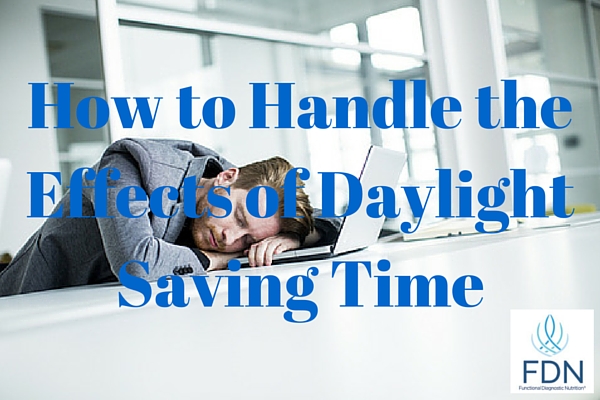Photo credit: © Boggy | Dreamstime.com
Throughout the US each spring, there comes a Sunday in which we routinely are required to move our clocks ahead by one hour. Daylight saving time is an annual event that was started in the US in 1918 as a way to conserve energy during World War 1, and reintroduced during World War 2. Daylight saving time did not become standardized during peacetime in the US until 1966 when the Uniform Time Act was established by the US Congress. Unfortunately, changing time and losing an hour each spring doesn’t happen without consequences on our health.
So how does Daylight saving time impact health negatively?
The change in time impacts the body’s natural circadian rhythm. The human body is affected by daylight but changing the clocks each year does not change the body’s natural clock. Researchers discovered in 2007 that people weren’t able to fully adjust their circadian rhythm to the hour time shift. As a result, the change in time can compromise the natural cortisol cycle in the body, which is the lowest in the middle of the night and peaks in the early morning hours. The man made time shift causes a delay in the peak of cortisol which can cause increased morning sleepiness. Those people who identified as being night owls are even more strongly affected by the change in time than those who are not.
The time change can affect length of sleep as well as quality. A 2006 study out of Finland showed that the one hour decrease in sleep actually reduced the efficiency of a person by approximately 10 percent. Therefore, the time change causes a reduction in productivity and the ability for a person to get done what needs to be done. A recent study of undergraduate students found that the start of daylight saving time also corresponded with later bedtimes, longer time in bed and a later waking time, thus reducing the amount of awake time that the students had to complete tasks.
Accidents in the workplace and home tend to increase after the start of daylight saving time begins. This may be a result of the grogginess that people feel, particularly on the day following the start of the time change. Accidents that do occur tend to be more severe in nature as well, as morning sleepiness decreases cognitive functioning and slows response time. It should be noted that there is also an increase in automobile accidents the day after daylight saving time begins as well. The combination of early morning darkness and sleepiness may be the reason for this phenomenon.
There is a 25% increase in heart attacks on the Monday following the start of daylight saving time each spring, and the increased risk lingers for the first 2-3 days after the time change occurs.
Because of morning sleepiness, people are more likely to reach for caffeine, sugar or other highly processed foods to help them function better through the morning hours. When people feel sleepy or are sleep deprived, cravings for junk food are heightened. The consumption of these foods leads the body to crave more, and although they may provide a short term boost in energy, as blood sugar levels spike and then fall, sleepiness will return, leading to a cycle of poor eating in order to gain energy.
So what can you do to minimize the effects of daylight saving time?
- Expose yourself to daylight as soon as you can after waking up. This will help the body to start adjusting the circadian rhythm.
- Minimize exposure to light in the evening. Avoid computer screens and smart phones, which actually mimic daylight and can throw off your circadian rhythm. If you must use a computer or laptop at night, there is software that you can download for free that can minimize the blue light coming from your screen and help to prevent sleep disturbances.
- You can have a cup or two of coffee or tea in the morning, but avoid caffeine in the afternoon and evening hours as it can cause insomnia.
- Be sure to get regular exercise. Exercise releases serotonin which can help the body to more effectively deal with the stress associated with the time change. If you can exercise outside, early in the day, it will help to reset the circadian rhythm by giving you sun exposure. Just avoid exercising too late in the evening, or it can interfere with sleep.
- Avoid the urge to nap. You may be sleepy, but taking long naps during the day can interfere with your quality of sleep at night. If you must nap, try to do so early in the day and limit nap time to no more than 30 minutes.
- Avoid alcohol. Alcohol interferes with proper sleep cycles, so, although it may be tempting to have a drink to help you relax before bed, it may actually be making sleep more difficult.
Remember to be kind to yourself as you allow your body to adjust to the change in time. Although the circadian rhythm will not fully adjust to the time change, you will begin to feel less fatigued and more normal in as little as two days after the change. It can take some people a week or more to feel adjusted to the change.
This year, daylight saving time begins on Sunday morning March 13 at 2:00 am EST.








